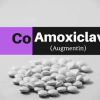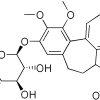Escilatopram – Selective Serotonin Reuptake Inhibitors (SSRI)
Introduction
Escitalopram is an antidepressant and anxiety medication, available in oral tablet or liquid form under the brand names of Cipralex, Citanew, Es-Pramcit, Excita. It works by assisting in the restoration of a natural substance (serotonin) equilibrium in the brain.
Class of Medicine
Escitalopram belongs to the selective serotonin reuptake inhibitors class of medicines (SSRI). It may increase your energy and emotions of well-being while also reducing anxiousness.
Mode of Action
By preventing the reuptake of serotonin into the presynaptic neuron, escitalopram raises intrasynaptic levels of the neurotransmitter. In comparison to less-selective SSRIs, escitalopram has the highest selectivity for the serotonin transporter (SERT) compared to the norepinephrine transporter (NET). As a result, the side-effect profile is quite modest.
Because escitalopram is a P-glycoprotein substrate, P-glycoprotein inhibitors like verapamil and quinidine may help it cross the blood-brain barrier. Escitalopram’s antidepressant-like effects were enhanced in a preclinical research in rats when it was combined with a P-glycoprotein inhibitor.
How should this medicine be used?
Escitalopram is available as a tablet and a liquid solution to be taken by mouth. It’s taken once a day, with or without food. Take escitalopram at the same time every day, either in the morning or in the evening, to help you remember to take it. Follow the directions on your prescription label carefully, and if there is anything you don’t understand, ask your doctor or pharmacist to explain it to you. Take escitalopram exactly as prescribed by your doctor. Do not take more or less of it, or take it more frequently than your doctor has suggested.
Common Side Effects
nausea
diarrhea
constipation
changes in sex drive or ability
drowsiness
increased sweating
dizziness
heartburn
stomach pain
excessive tiredness
dry mouth
decreased appetite
weight loss
flu-like symptoms
runny nose
sneezing
Important Warning
When you take this drug, you could develop a dangerous illness called serotonin syndrome. It happens when there are dangerously high quantities of a natural brain chemical. It happens when your levels of serotonin, a natural brain chemical, are dangerously high. It’s most likely to happen if you combine this medication with other serotonin-boosting medications. Irritability, agitation, disorientation, hallucinations, tight muscles, tremors, and seizures are all signs of serotonin syndrome. If you have this, get immediate medical attention.
Irritability, agitation, anxiety, high or low mood, restlessness, changes in sleep habits, headache, sweating, nausea, dizziness, electric shock-like feelings, shaking, and confusion are all possible withdrawal side effects if you stop using this drug too soon. Do not discontinue taking escitalopram without first consulting your doctor. To avoid these withdrawal symptoms, he or she will gradually reduce your dose.
If you take aspirin, nonsteroidal anti-inflammatory medications (NSAIDs), warfarin, or other anticoagulants, escitalopram can increase your risk of bleeding. If you see any bleeding or unusual bruising, consult your doctor or pharmacist.
Available Brands (list can be updated in future)
Cipralex
Citanew
Es-Pramcit
Excita



